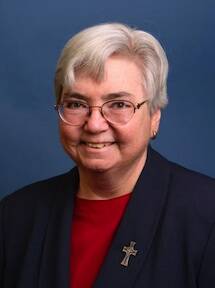To evoke lively conversations, ask why so many Catholics no longer go to Mass. Some people will cite doctrinal issues like birth control, divorce and remarriage, and sexual mores. Others will speak of their experiences of the church as irrelevant to their lives. Others will cite church scandals; and others, the fact that a priest, nun or another parishioner made them feel unwelcome.
Some say they have little time for church. This is a particular problem for families who have two working parents and children involved in organized sports and activities like band and drama. There are elderly parents to visit and care for. Boredom enters the equation in our hyper society. For getting on the family calendar, what pastor can compete with quality drama or the philharmonic, or even self-help groups with immediate and lasting effects?
They look at how the church relates to their lives, perhaps missing that church is also about how people relate to God. Are people looking for too much? A pastor from Maryland reports that “there is a need for people’s experience of the church to be ‘transformative,’ but it is not merely about a euphoric feeling people sometimes look for. If that is what they are looking for, then they will be disappointed and give up on it. I think we have to do a better job of expressing the purpose of our worship.”
All of which challenge the church.
The Diocese of Springfield, Ill., tackled the question in 2013 and 2014 with Benedictine University’s report “Joy and Grievance in an American Diocese: Results from Online Surveys of Active and Inactive Catholics in Central Illinois.” According to the Georgetown University-based Center for Applied Research in the Apostolate, CARA, the two-part survey does not meet scientific sampling standards because it’s a convenience sample, not a true random sample, what is called a “volunteer sample.” Yet the results were interesting.
The survey results provided a summary of views of the 575 inactive and 827 active Catholics who responded. My own casual canvassing found similar rationales.
Some of those surveyed say “they closed my church,” which means some people equate closure of their parish church building as closure of the very church with which they identify, where they experienced their own and their siblings’ and children’s sacraments, like baptism, first Communion, confirmation and marriage, as well as family funerals. It is a narrow understanding of church.
Others say, “I don’t get anything out of going to church.” They were expecting good feelings? The right numbers for the lottery? Feeling all good inside?
“I’m too busy to go to church and I work three jobs,” which may be a paraphrase for “I have better, or at least other things to do.”
People feel marginalized. This can be especially true for women, given their exclusion from one of the seven sacraments. There also are the separated, the divorced and remarried and the lesbian, gay, bisexual and transsexual Catholics. When they hear homilies against what they are at their very core, they do not feel understood or strengthened by what comes from the pulpit. For people in marriages not recognized by the church, the church’s annulment process doesn’t look encouraging either.
Pope Francis, in his apostolic exhortation “The Joy of the Gospel, highlights the parish’s significance.
The parish is not outdated, he said. He added that “precisely because it possesses great flexibility, it can assume quite different contours depending on the openness and missionary creativity of the pastor and the community.”
Homilies, said Francis, need to carry a fitting sense of proportion. He added that “this would be seen in the frequency with which certain themes are brought up and in the emphasis given to them in preaching.” He said that “if in the course of the liturgical year a parish priest speaks about temperance 10 times but only mentions charity or justice two or three times, an imbalance results…. The same thing happens when we speak more about law than about grace, more about the church than about Christ, more about the pope than about God’s word.” How to address these matters awaits another day and the inspiration of the Holy Spirit.








